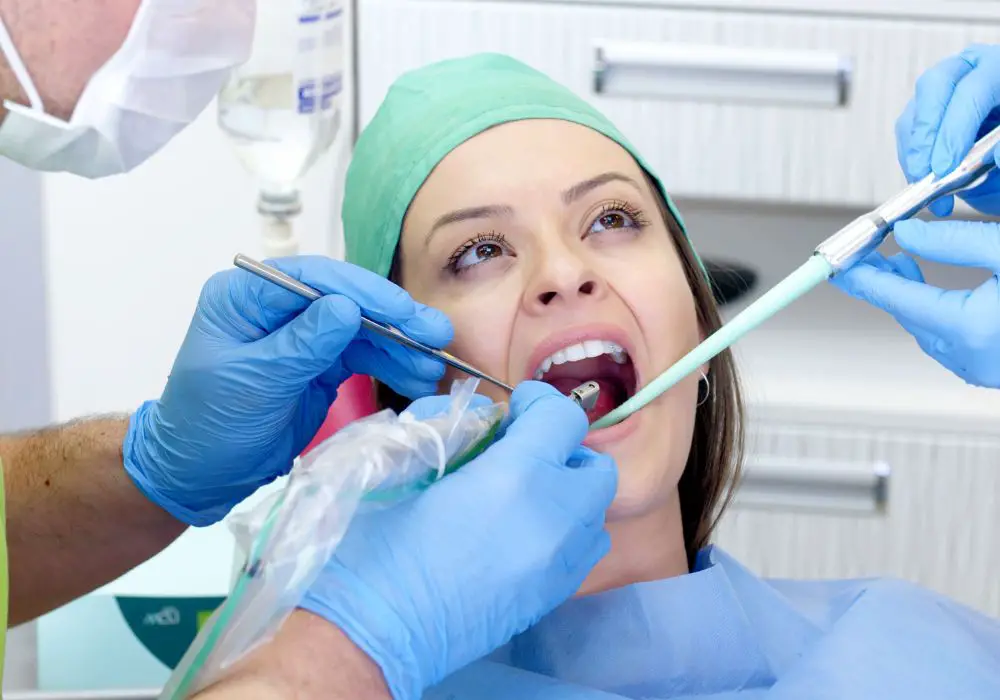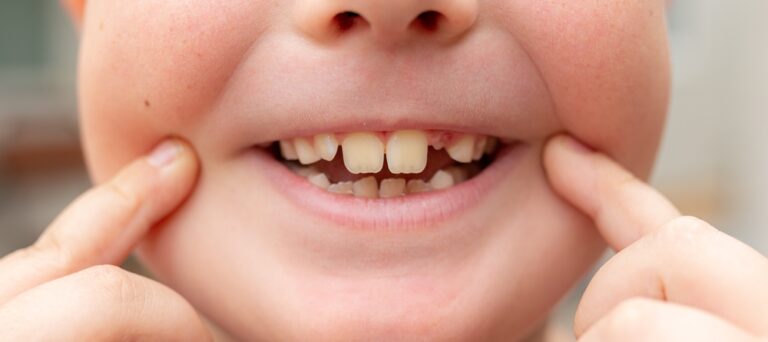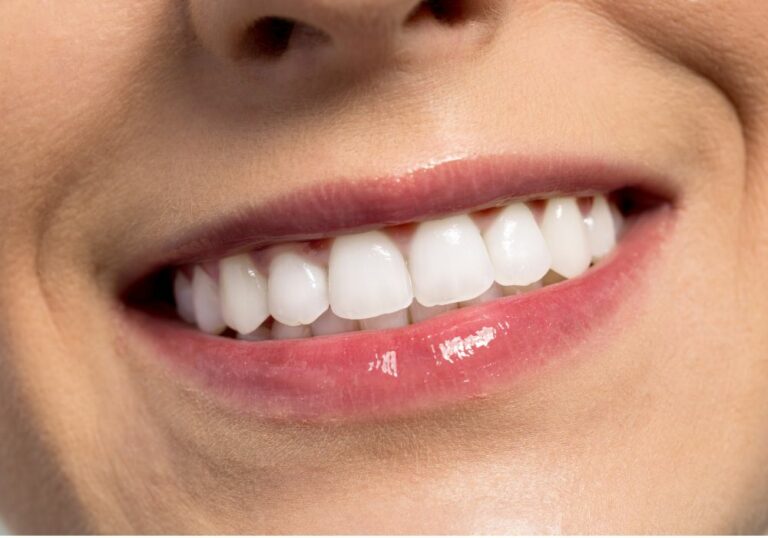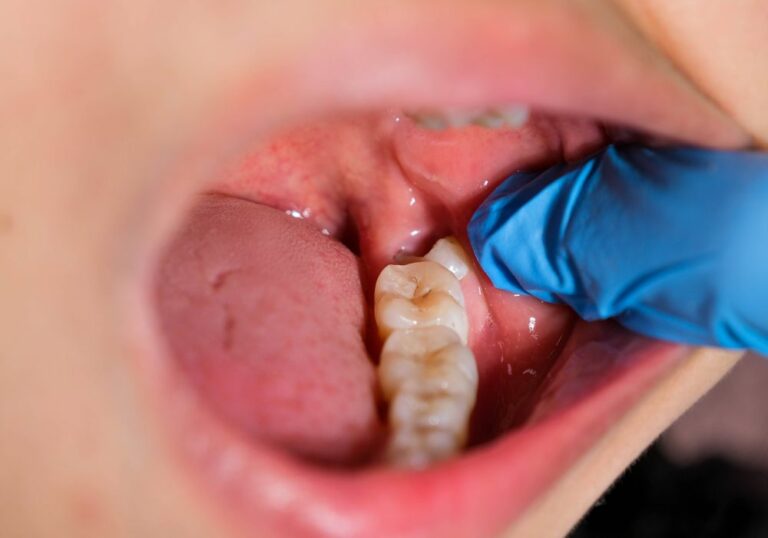If you have lost a tooth or teeth, you may be wondering if they are easy to replace. The answer is not a simple one, as it depends on a few factors. However, there are several options available to replace missing teeth, each with its own advantages and disadvantages.
One of the main factors that determines how easy it is to replace a tooth is the location of the missing tooth. For example, if the tooth is in the front of your mouth, it may be more challenging to replace, as it is more visible and needs to look natural. Additionally, the health of your gums and jawbone can also impact the ease of tooth replacement.
Despite these challenges, there are several options available for tooth replacement. These include dental implants, dentures, and bridges. Each option has its own unique benefits and drawbacks, so it is important to discuss your options with your dentist to determine which is the best fit for you.
Understanding Teeth Replacement

Losing a tooth can be a traumatic experience, but thanks to modern dentistry, there are several options available for replacing missing teeth. Here are some common methods for teeth replacement:
Dental Implants
Dental implants are a popular option for replacing missing teeth. They are surgically implanted into the jawbone and act as an anchor for an artificial tooth. Dental implants are a long-lasting solution and can last up to 25 years with proper care.
Fixed Partial Dentures
Fixed partial dentures are also known as dental bridges. They are made up of a series of artificial teeth that are anchored to the remaining natural teeth on either side of the gap. Fixed partial dentures are a good option for people who have lost one or more teeth in a row.
Removable Partial Dentures
Removable partial dentures are similar to fixed partial dentures, but they can be removed for cleaning. They are held in place by clasps that attach to the remaining natural teeth. Removable partial dentures are a good option for people who have lost several teeth in a row.
Complete Dentures
Complete dentures are used when all of the teeth are missing. They are made up of a full set of artificial teeth that are held in place by suction. Complete dentures can take some getting used to, but they are a good option for people who have lost all of their teeth.
No matter which method you choose, it is important to take good care of your replacement teeth. Brush and floss regularly, and visit your dentist for regular checkups and cleanings. With proper care, your replacement teeth can last for many years.
Types of Teeth Replacement
When it comes to replacing missing teeth, there are several options available to you. Each option has its own benefits and drawbacks, so it’s important to discuss your specific needs with your dentist to determine which option is best for you. Here are the three main types of teeth replacement:
Dental Implants
Dental implants are a popular option for replacing missing teeth. They are a permanent solution that looks and feels like natural teeth. A dental implant is a small titanium post that is surgically placed into the jawbone. Once the implant has fused with the bone, a crown is attached to the top of the post. Dental implants are a good option for people who have lost one or more teeth, as well as those who have lost all of their teeth.
Bridges
Dental bridges are another option for replacing missing teeth. A bridge is a prosthetic device that is used to replace one or more missing teeth. It consists of one or more artificial teeth that are attached to adjacent natural teeth or implants. Bridges are a good option for people who have lost one or more teeth, but do not want or cannot have a dental implant.
Dentures
Dentures are removable appliances that are used to replace missing teeth. They are made from a combination of acrylic resin and metal. Dentures can be used to replace one or more missing teeth, or a full arch of teeth. They are a good option for people who have lost all of their teeth, but do not want or cannot have dental implants.
In conclusion, there are several options available for replacing missing teeth. Each option has its own benefits and drawbacks, so it’s important to discuss your specific needs with your dentist to determine which option is best for you. Whether you choose dental implants, bridges, or dentures, you can restore your smile and improve your oral health.
Procedure for Teeth Replacement

Replacing missing teeth can help improve your smile, chewing ability, and overall oral health. The process of replacing teeth involves several steps, including consultation, preparation, procedure, and recovery. Here’s what you can expect during each stage of the teeth replacement process.
Consultation
The first step in replacing missing teeth is to schedule a consultation with a dentist or oral surgeon. During this appointment, your oral health will be evaluated, and your dentist will discuss the different tooth replacement options available to you. This may include dental implants, bridges, or dentures.
Your dentist will also take X-rays and impressions of your teeth to help determine the best course of treatment. You will have the opportunity to ask questions and voice any concerns you may have about the procedure.
Preparation
Once you and your dentist have decided on the best tooth replacement option for you, the next step is preparation. This may involve extracting any remaining damaged teeth, if necessary, and preparing the area for the replacement teeth.
For dental implants, this may involve placing metal posts into the jawbone to serve as artificial tooth roots. For bridges, healthy teeth may be covered with crowns to support the bridge. Dentures may require impressions of your gums to ensure a proper fit.
Procedure
The tooth replacement procedure will depend on the option you and your dentist have chosen. Dental implant surgery typically involves placing the metal posts into the jawbone, allowing them to fuse with the bone over time. Once the implants have healed, replacement teeth are attached to the posts.
Bridges and dentures are typically attached to the remaining healthy teeth or gums. Your dentist will ensure a proper fit and adjust the replacement teeth as needed to ensure a comfortable and natural-looking smile.
Recovery
After the tooth replacement procedure, it’s important to follow your dentist’s instructions for recovery. This may include avoiding hard or sticky foods, taking pain medication as prescribed, and maintaining good oral hygiene.
For dental implants, you may need to avoid chewing on the implant site for a period of time to allow the implants to fully integrate with the jawbone. Your dentist will provide you with detailed instructions on how to care for your new replacement teeth to ensure they last as long as possible.
Overall, replacing missing teeth can help improve your oral health and confidence. By working closely with your dentist or oral surgeon, you can find the best tooth replacement option for your needs and enjoy a healthy, beautiful smile.
Cost of Teeth Replacement
Replacing missing teeth can be expensive, but the cost varies depending on the type of replacement you choose. Here are some of the most common options and their approximate costs:
Dental Implants
Dental implants are a popular option for replacing missing teeth because they look and function like natural teeth. However, they are also the most expensive option. The cost of a single dental implant can range from $1,000 to $6,000, depending on the size and material. If you need to replace multiple teeth, the cost can quickly add up. A full mouth of dental implants can cost up to $42,001, including all related fees.
Bridges
A dental bridge is a good option for replacing several missing teeth. The cost of a bridge depends on the number of teeth being replaced and the materials used. A traditional bridge, which consists of artificial teeth fused to a metal frame, can cost between $500 and $1,200 per tooth. A cantilever bridge, which is used when there are adjacent teeth on only one side of the missing tooth or teeth, can cost between $1,000 and $2,500 per tooth.
Dentures
Dentures are a removable option for replacing missing teeth. The cost of dentures varies depending on the type and materials used. A full set of conventional dentures can cost between $600 and $8,000, while a partial denture can cost between $300 and $5,000. Implant-supported dentures are more expensive, with a full set costing up to $50,000.
Insurance Coverage
Unfortunately, most dental insurance plans do not cover the full cost of teeth replacement. However, some plans may cover a portion of the cost, so it’s important to check with your insurance provider to see what is covered.
In conclusion, the cost of replacing missing teeth can vary greatly depending on the type of replacement you choose. Dental implants are the most expensive option, while dentures are the most affordable. It’s important to consider your budget and insurance coverage when deciding which option is right for you.
Benefits of Teeth Replacement

If you have lost one or more teeth, you may be wondering about the benefits of replacing them. Here are some of the advantages of teeth replacement:
- Improved appearance: Replacing missing teeth can help you feel more confident about your smile. Dental implants, for example, look and feel like natural teeth and can blend in seamlessly with your existing teeth.
- Better chewing and digestion: Missing teeth can make it difficult to chew food properly, which can lead to digestive problems. Teeth replacement can help you chew more effectively, which can improve your digestion and overall health.
- Prevent bone loss: When you lose a tooth, the bone that supported it can start to deteriorate. Teeth replacement options like dental implants can help prevent bone loss by stimulating the bone and keeping it healthy.
- Maintain oral health: Missing teeth can make it harder to keep your mouth clean, which can lead to gum disease and other oral health problems. Teeth replacement can help you maintain good oral hygiene and prevent these issues.
Overall, replacing missing teeth can have many benefits for your oral health, appearance, and overall well-being. If you are missing teeth, talk to your dentist about the best teeth replacement options for you.
Risks and Complications of Teeth Replacement
When considering teeth replacement, it is important to be aware of the potential risks and complications that may arise. While teeth replacement procedures are generally safe and effective, there are certain risks that you should be aware of.
Infection
Infection is one of the most common complications associated with teeth replacement. This can occur when bacteria enters the site of the implant or surrounding tissues. In some cases, the infection may be mild and treatable with antibiotics. However, more severe infections may require the removal of the implant and additional treatment.
Nerve Damage
Nerve damage is another potential complication of teeth replacement. This can occur when the implant is placed too close to a nerve, resulting in pain, numbness, or tingling in the surrounding areas. While this is a relatively rare complication, it is important to discuss any concerns you may have with your dentist.
Sinus Problems
If you are getting an implant in your upper jaw, there is a risk that the implant may protrude into one of your sinus cavities. This can cause sinus problems, such as congestion, pressure, or pain. Your dentist will take steps to minimize this risk, but it is important to be aware of the potential for complications.
Allergic Reactions
In rare cases, patients may experience an allergic reaction to the materials used in the implant or other components of the replacement procedure. This can cause symptoms such as swelling, itching, or hives. If you have a history of allergies, be sure to discuss this with your dentist before undergoing any teeth replacement procedures.
Healing Issues
Finally, some patients may experience issues with healing after teeth replacement procedures. This can be due to a variety of factors, including medical conditions, medications, or lifestyle factors such as smoking. If you are concerned about your ability to heal properly after a teeth replacement procedure, be sure to discuss this with your dentist.
Overall, while there are potential risks and complications associated with teeth replacement, these procedures are generally safe and effective. By working with a skilled and experienced dentist, you can minimize your risk of complications and achieve a healthy, beautiful smile that lasts for years to come.
Maintaining Replaced Teeth
Once you have replaced your missing teeth, it is important to maintain them properly to keep them healthy and functional. Here are some tips to help you take care of your replaced teeth:
Brush and Floss Regularly
Just like your natural teeth, your replaced teeth need to be brushed and flossed regularly to remove plaque buildup and prevent gum disease. Use a soft-bristled toothbrush and fluoride toothpaste to brush your teeth twice a day for at least two minutes each time. Floss your teeth at least once a day to remove any food particles and plaque that may be stuck between your teeth.
Avoid Hard and Sticky Foods
Hard and sticky foods can damage your replaced teeth and cause them to come loose or break. Avoid chewing on hard candies, ice cubes, popcorn kernels, and other hard or crunchy foods. Also, avoid sticky foods like caramel, taffy, and gum, which can pull on your replaced teeth and cause them to come loose.
Wear a Mouthguard
If you play sports or grind your teeth at night, wearing a mouthguard can help protect your replaced teeth from damage. A mouthguard can absorb the impact of a blow to the face and prevent your teeth from chipping or breaking. It can also cushion your teeth and reduce the pressure on them if you grind your teeth at night.
Visit Your Dentist Regularly
Regular dental checkups are important to maintain the health of your replaced teeth. Your dentist can check your replaced teeth for any signs of damage or decay and recommend any necessary treatments to keep them healthy. Your dentist can also clean your teeth and remove any plaque or tartar buildup that may be present.
By following these tips, you can maintain the health and function of your replaced teeth and keep them looking great for years to come.
Frequently Asked Questions
What are the best options for replacing missing teeth?
There are several options for replacing missing teeth, including dental implants, bridges, and dentures. Dental implants are considered the best option as they are the most durable and natural-looking option. Bridges and dentures are also good options, but they may not be as long-lasting as dental implants.
How much does it cost to replace a single tooth?
The cost of replacing a single tooth can vary depending on the type of replacement option you choose. Dental implants are the most expensive option, with costs ranging from $1,000 to $3,000 per tooth. Bridges and dentures are less expensive, with costs ranging from $500 to $1,500 per tooth.
What is the cost of replacing all teeth with implants?
The cost of replacing all teeth with implants can be quite high, with prices ranging from $20,000 to $50,000 or more. However, it is important to remember that dental implants are the most durable and long-lasting option, and they can significantly improve your quality of life.
Is there a temporary tooth replacement available over the counter?
Yes, there are several temporary tooth replacement options available over the counter, including dental cement, temporary filling material, and temporary tooth replacement kits. However, these options are not as durable as professional dental replacements and should only be used as a temporary solution.
How painful is it to have a tooth replaced?
The level of pain associated with tooth replacement can vary depending on the individual and the type of replacement option chosen. However, most people experience only mild discomfort during the procedure, and pain can usually be managed with over-the-counter pain medication.
How long does it take to replace a missing tooth?
The length of time it takes to replace a missing tooth can vary depending on the type of replacement option chosen. Dental implants can take several months to complete, while bridges and dentures can be completed in a matter of weeks. Your dentist can provide you with a more accurate timeline based on your specific needs.







